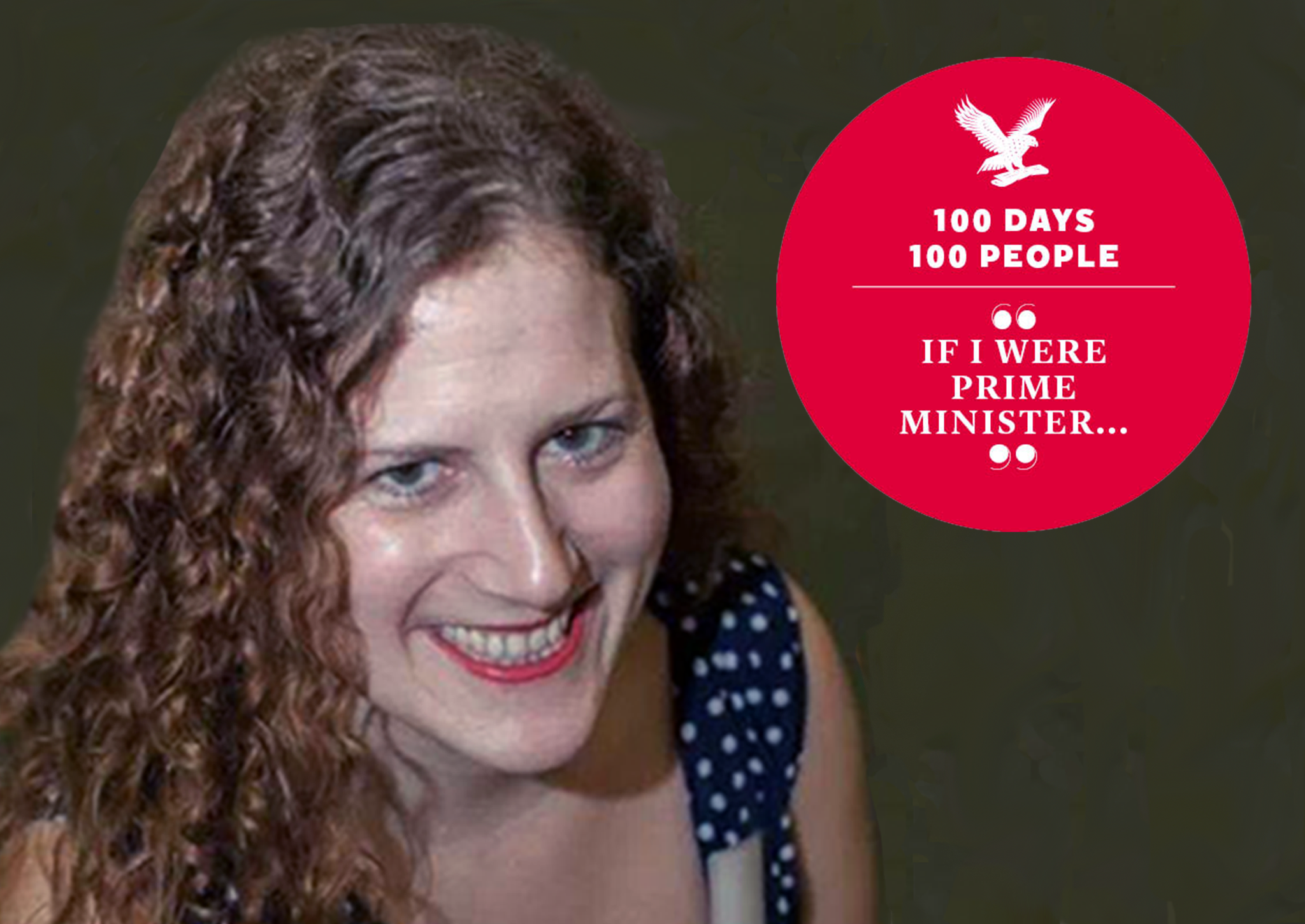If I were Prime Minister: I would create a government that actually reflects its people
Our series in the run-up to the General Election – 100 days, 100 contributors, but no politicians – continues with the writer and disability rights campaigner

Your support helps us to tell the story
From reproductive rights to climate change to Big Tech, The Independent is on the ground when the story is developing. Whether it's investigating the financials of Elon Musk's pro-Trump PAC or producing our latest documentary, 'The A Word', which shines a light on the American women fighting for reproductive rights, we know how important it is to parse out the facts from the messaging.
At such a critical moment in US history, we need reporters on the ground. Your donation allows us to keep sending journalists to speak to both sides of the story.
The Independent is trusted by Americans across the entire political spectrum. And unlike many other quality news outlets, we choose not to lock Americans out of our reporting and analysis with paywalls. We believe quality journalism should be available to everyone, paid for by those who can afford it.
Your support makes all the difference.If I were elected PM, I might be a bit concerned. Is the country really sure they want to elect a leader who naps frequently, doesn’t know how to play Candy Crush in a committee meeting or how to reach the world’s most popular dictators on speed dial? Really? Well, in that case...
Powerful leaders have a tendency towards megalomania so to guard against any future dictatorial tantrums a cabinet comprised of pragmatic, strong-willed team players with expertise in the relevant ministry would be first. A government should reflect its people. So immediately reforming the way that Parliament operates, to allow for a working life which encourages older people, disabled people, parents of young children, and those without the most privileged start in life, would be a start.
Parliament will also be moved to a remote, yet roughly central area in England ensuring that those travelling there to work understand the urgency of improving public transport.
Rather than focusing on one particular policy area such as social security, defence or education, I would also look to change the way we view, plan and deliver public services. Rigidly imposed "fixes" designed by politicians, usually with no relevant experience of those services, don’t work well. Focusing on the person seeking help, and offering them solutions relevant to their lives rather than those the system permits, produces better value public services, as well as happier front line staff. It also allows individuals to actually gain some control over their own lives.
The House of Lords is an anachronism, but an elected second chambers would only serve to further politicise a process which should be about expert scrutiny and careful reflection. I’d ensure partisan former politicians cannot outvote the rest of the House which will be comprised of People’s Peers. Applications will be particularly encouraged from those with front line experience – cleaners, carers, teachers, small business people and the like.
There would probably be no agreement from the cabinet about whether it’s more important to reduce what we owe in debt or the difference between our country’s outgoings and incomings. But as we are all settling into our new roles as power holders we'd still congratulate ourselves for knowing the difference between debt and deficit.
There’s a general suspicion that tax evaders might have some spare funds so, bearing in mind that benefit fraud is less than 1 per cent of the overall bill, the majority of DWP fraud investigators are to be transferred to HMRC and retrained as tax evasion investigators.
Having also remembered that borrowing is currently cheap, the government will invest in building homes. All will conform to lifetime homes standards, meaning they are easy to convert for disabled access, and are family friendly and energy efficient.
Paid, vocational apprenticeships will be widely used to ensure employment increases and ensure Britain has the skills and opportunities we need for a strong future. More young people in paid training means a stronger economy, as more can spend and participate.
Social care will also become free at the point of use, enabling more disabled people to consider employment and allowing unpaid carers to enter the workforce if they wish. What's more, strong training schemes and living pay for apprenticeships transforms "caring" into a fairly paid, attractive profession.
A Britain seeking to truly be great again must start by remembering what that means – tolerance, equality, social security and opportunity for all.
Join our commenting forum
Join thought-provoking conversations, follow other Independent readers and see their replies
Comments